Markus Kitza
Cumulative Adaptation for BLSTM Acoustic Models
Jun 14, 2019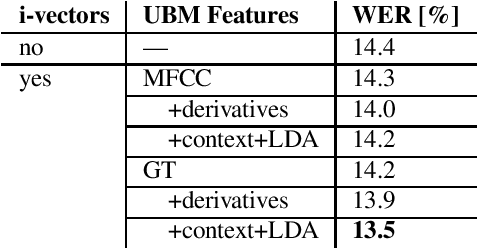
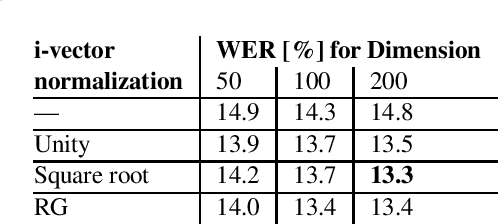
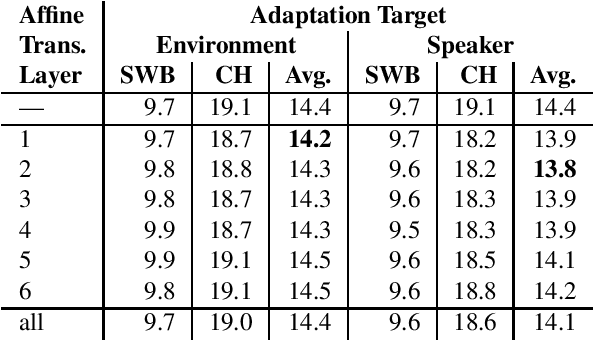
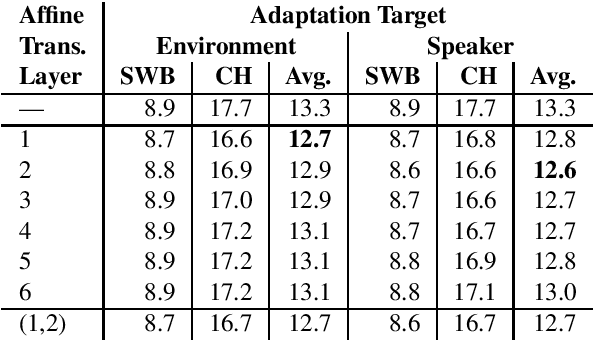
Abstract:This paper addresses the robust speech recognition problem as an adaptation task. Specifically, we investigate the cumulative application of adaptation methods. A bidirectional Long Short-Term Memory (BLSTM) based neural network, capable of learning temporal relationships and translation invariant representations, is used for robust acoustic modelling. Further, i-vectors were used as an input to the neural network to perform instantaneous speaker and environment adaptation, providing 8\% relative improvement in word error rate on the NIST Hub5 2000 evaluation test set. By enhancing the first-pass i-vector based adaptation with a second-pass adaptation using speaker and environment dependent transformations within the network, a further relative improvement of 5\% in word error rate was achieved. We have reevaluated the features used to estimate i-vectors and their normalization to achieve the best performance in a modern large scale automatic speech recognition system.
RWTH ASR Systems for LibriSpeech: Hybrid vs Attention - w/o Data Augmentation
May 08, 2019
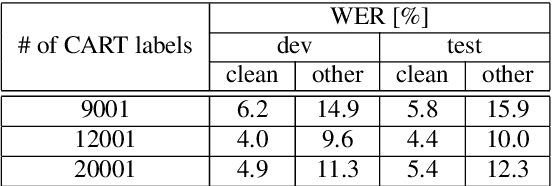
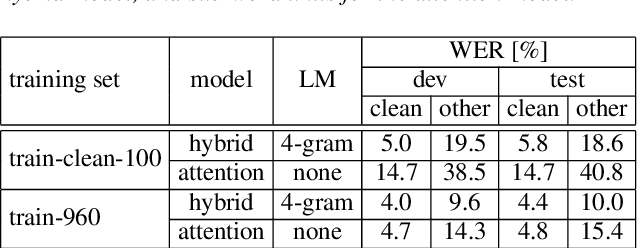
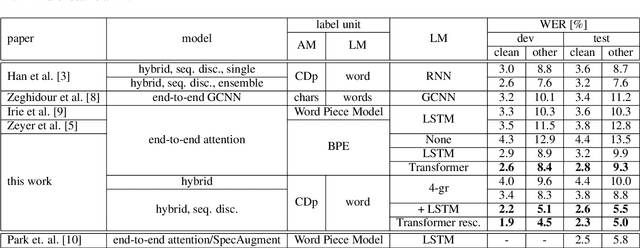
Abstract:We present state-of-the-art automatic speech recognition (ASR) systems employing a standard hybrid DNN\/HMM architecture compared to an attention-based encoder-decoder design for the LibriSpeech task. Detailed descriptions of the system development, including model design, pretraining schemes, training schedules, and optimization approaches are provided for both system architectures. Both hybrid DNN/HMM and attention-based systems employ bi-directional LSTMs for acoustic modeling/encoding. For language modeling, we employ both LSTM and Transformer based architectures. All our systems are built using RWTHs open-source toolkits RASR and RETURNN. To the best knowledge of the authors, the results obtained when training on the full LibriSpeech training set, are the best published currently, both for the hybrid DNN/HMM and the attention-based systems. Our single hybrid system even outperforms previous results obtained from combining eight single systems. Our comparison shows that on the LibriSpeech 960h task, the hybrid DNN/HMM system outperforms the attention-based system by 15% relative on the clean and 40% relative on the other test sets in terms of word error rate. Moreover, experiments on a reduced 100h-subset of the LibriSpeech training corpus even show a more pronounced margin between the hybrid DNN/HMM and attention-based architectures.
 Add to Chrome
Add to Chrome Add to Firefox
Add to Firefox Add to Edge
Add to Edge